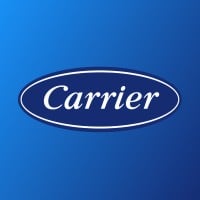
Carrier
Carrier Global Corporation, global leader in intelligent climate and energy solutions, is committed to making the world safer, sustainable and more comfortable for generations to come. From the beginning, we’ve led in inventing new technologies and entirely new industries. Today, we continue to lead because we have a world-class, diverse workforce that puts the customer at the center of everything we do. For more information, visit www.Corporate.Carrier.com.






